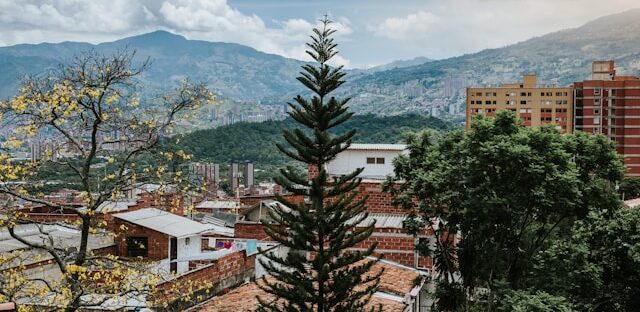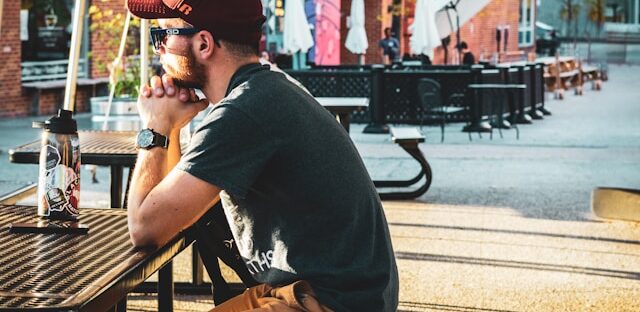Djelènne arrived at the parking area about ten minutes later than agreed, despite having driven faster than usual. However, a delay of up to fifteen minutes was not uncommon on the island. Moreover, this wasn’t a work appointment; it was a chance to spend time with her friend Zadìa, who had travelled from the Netherlands with her boyfriend Paul for a short vacation on her home island. Djelènne was eager to reconnect, as their once-close lifelong friendship had begun to falter since she had moved back home. They were set to embark on a small group hike through Christoffel Park, where they would climb the 371-metre-high Christoffelberg together.
As she walked from her parked car towards the visitor center to buy a ticket, Djelènne spotted Zadìa hurrying towards her. Her strides were brisk, and her lips were tightly pressed together. Upon reaching Djelènne, she hissed, “You’re late Dee! Paul has already bought our tickets but didn’t want to buy yours in case you didn’t show up.”
Feeling attacked, Djelènne looked Zadìa up and down. “Really Zee? Ten minutes late, and you assume I wouldn’t show?”
Zadìa sputtered, taken aback by the unexpected aggression in Djelènne’ s tone. “Well, we were early, and Paul is enthusiastic…”
“Wow,” Djelènne interrupted, making her way past Zadìa. “This is coming from someone who is notorious for making her friends wait an hour or more on girls’ nights out. And by the way, nice to see you too. I’ll get my ticket myself. It’s way too early for this!”
As Djelènne entered the visitor center, Paul approached her with a smile. Just as she was about to hiss at him too, he beamed, “You probably rushed on your day off, so here you go!” He handed her coffee in a paper cup. “I thought you might need this.”
Taken aback, Djelènne simply nodded, accepted the cup, and took a sip. Paul quickly walked on, stepping outside to enjoy the nature surrounding the visitor center. Djelènne returned outside with her ticket in under ten minutes and joined the group gathered around the park ranger who would be their guide for today. Still not fully warmed up to her friend, Djelènne chose to linger at the back of the group.
As the group set off, Paul was clearly captivated by everything the park ranger was saying, asking questions about the various bushes and trees, the lizards darting through the underbrush, and the birds fluttering by. Paul seemed to demand the ranger’s full attention, as if expecting a private tour, and appeared oblivious to the other group members, some of whom had their own questions or, like Djelènne, simply wanted to enjoy the peaceful early morning and listen to the sounds of nature waking up, rather than the chatter of an overly eager person.
Djelènne studied Zadìa, who, despite knowing how Paul’s behavior could be interpreted as obnoxious, offered no discouragement. Instead, she continued to nod and respond positively to his comments.
As the group walked on, the sky grew darker. A short morning shower, typical of this time of the year, could be expected any time soon. Djelènne was glad she had grabbed a transparent shower cap from her car dashboard and shoved it in her handbag. She always kept a few caps in her car for such occasions. An umbrella would be impractical for a hike, and frankly, it wouldn’t stop the rain and humidity from frizzing her straightened, hot-ironed hair.
Sure enough, a light drizzle began. Djelènne pulled out her shower cap and covered her hair. Some group members chuckled. She didn’t mind; she knew some women in the group envied her and were noting this tip for the future.
Suddenly, Paul spotted her and burst out laughing. “A shower cap? Seriously? It’s just a drizzle!” Djelènne glanced at Zadìa, hoping for some support. To her surprise, Zadìa was also laughing. Noticing Djelènne’ s irritation, she playfully shoved Paul and said, “Stop it! It’s to prevent her hair from frizzing. That’s important here; her hair needs to look good—nice and straight!”
Paul replied, “Well, I’m glad it’s not you wearing a shower cap in public! It’s embarrassing.” Zadìa laughed and kissed his remark away.
Djelènne was taken aback. She didn’t expect this reaction from Zadìa—the very same person who, only three years ago, had begun to let her straightened hair grow out, now sporting a natural, voluminous afro. Zadìa had always disliked big hair, ensuring her appointments with the hairdresser every six weeks to keep her chemically straightened locks perfectly maintained and meticulously hot-ironed at all times. Ironically, it was she who had taught Djelènne the shower cap trick during their time together in the Netherlands, where the rain could linger for hours, and the shower cap offered discreet protection beneath their hats or hoodies.
As they continued walking, the drizzle subsided, and Djelènne tucked her shower cap away. She loosened her hair to let it regain some volume and absorb the rising sun’s intensifying rays. As she was now walking more at the back of the group, thoughts of Zadìa and Paul began to fade as she felt herself calm down, focusing instead on her surroundings. She found joy in the green ferns and cacti, and every now and then, she spotted a small bird flitting by.
After a while, Djelènne realized she had agreed to the hike primarily to catch up with Zadìa. If she wanted to spend some time with her friend, she would need to make the effort to approach her. With a sigh, she quickened her pace to reach the front of the group.
Zadìa seemed happy enough as she threw her arm around Djelènne’ s shoulder. “Here we are, the legendary Dee and Zee, finally hiking up this mountain! Can you believe it’s my first time?” Before Djelènne could respond, Paul jumped in, clearly oblivious to the need for the friends to spend some time together. “I think it’s unbelievable that you girls grew up here and never climbed the mountain. I mean, it’s not even that high.”
Djelènne felt her irritation flare up again. “Well, have you climbed the Vaalserberg in the Netherlands?” Paul, as expected, replied defensively, “Of course not, but the Netherlands is much larger. This island is so small, there’s hardly anything else to do. It takes less than 40 minutes to get here. I mean, really?!”
“Well, I think it’s the same—you don’t visit all the tourist attractions in your own city. And just so you know, I’ve climbed this mountain several times since moving back here.” Paul snorted and quickened his pace to catch up with the park ranger. Djelènne remained silent, feeling Zadìa’s grip on her shoulder loosen as she moved away to join her boyfriend.
They walked on and as they approached the final few meters, the park ranger instructed the group to continue straight ahead. There was an alternative route to the right that was less steep but known to be riskier, as it led over an exposed area with fewer trees and bushes to grab onto for balance. More experienced climbers often chose this path for the adrenaline rush and the stunning views.
Djelènne noticed Paul heading to the right. Before she could stop herself, she called out, “You know, it’s probably best to stick to the straight path.” Paul laughed contemptuously. “Don’t be such a wuss! This little hill is nothing.” He grabbed Zadìa’s hand. “You coming too?”
Djelènne caught the hesitation in Zadìa’s eyes. Though Zadìa had never climbed the mountain, every local knew that this misplaced bravery among outsiders often led to accidents. Still, Zadìa forced a smile and nodded. “Of course. I mean, it can’t be that hard.”
Djelènne shook her head in annoyed disbelief and pushed forward, eager to get the climb over with. She cast one last glance at Paul and Zadìa. By the look of Zadìa’s hunched shoulders, Djelènne was certain she was having second thoughts. Was it being in love that made her act like this? Or something else? With a sigh, Djelènne muttered “Makambia” under her breath, a Papiamentu insult for those who went to Holland and returned home as if they had become Dutch, forgetting the daily life, customs, norms, and values of their homeland.
Once Djelènne reached the summit, she walked over the plateau, taking in the breathtaking views of the island and the surrounding ocean. The air was slightly hazy, creating the illusion of gazing over the landscape through a delicate veil of clouds. A flock of birds soared gracefully just below them, enhancing the beauty and depth of the scene. The breeze was cooler than it had been lower down, and amidst the sound of the wind and the gentle murmurs of other visitors, Djelènne felt a sense of peace.
Suddenly, a scream pierced the air, and Djelènne instantly recognized it as Zadìa’s voice. Everyone jolted and turned towards the sound. Moments later, Paul and Zadìa emerged. Zadìa looking slightly pale. Djelènne rushed to her friend. “Are you okay?”
“Yes, I just slipped and lost my balance,” Zadìa replied, her voice shaky. Paul was rubbing her back, “She just got a bit scared, nothing major. Just overreacting a little, right, babe?”
Djelènne felt a surge of anger rising again. Just as she was about to speak up, she noticed Zadía giving a faint smile and, looking up at Paul, replied, “I just got a bit scared.”
Djelènne couldn’t believe her ears. What had happened to the friend who used to stand up for herself and her feelings? Even if those feelings were exaggerated or unfounded, Zadìa had always been authentic.
Djelènne stepped back, disappointed in her friend and walked back to the group. As they all gathered for a group picture, Djelènne was ready to leave. After the photo, they all set off on the descent. The trail was still moist in places and slippery, so the ranger warned everyone to be extra careful and to take their time.
A few daredevils chose to take the difficult path once more. Djelènne sighed as she observed Paul and Zadìa joining that group. “Nan asuntu, nan kuenta—it’s their problem, their deal,” she muttered to herself. All she wanted was to be back in her car and on her way home. Djelènne moved on to begin the descent. Like many in their group, she decided to heed the ranger’s advice and sat down, slowly making her way down on her backside. She didn’t worry about getting her pants dirty; she preferred the sense of control that being closer to the ground provided.
As he continued down the slope, Paul was close to Zadìa, encouraging her to keep going. Suddenly, Paul lost his footing, flailing his arms to maintain his balance as he managed to grab hold of a nearby shrub. He let out a profanity, but remained standing.
Zadìa, however, was taken aback by his movements. As she had been holding onto Paul, she lost her grip and her balance. In an instant, she was crashing down. Her lower leg bent unnaturally, while her upper body fell forward with full force onto her bent knee. She screamed as she tried to halt her downward slide by pressing her palms against the rocky ground, scraping her hands and underarms as her shirt rode up her back. Finally, she came to a stop. Zadìa’s mind needed a moment to catch up with what had just happened to her body. When it did, an uncontrollable wail escaped her lips, as the reality of her severe fall sank in.
All this time, Djelènne had stood frozen. The onlookers around her seemed just as dazed, their minds unable to process the chaos that had unfolded so rapidly. It was the ranger who first sprang into action, rushing to Zadìa’s side and jolting Djelènne into movement. Eager to comfort her friend, Djelènne reached out, but Paul got to Zadìa first, placing himself between her and Zadìa, effectively blocking her access.
Paul quickly made a makeshift pillow from a bag, so Zadìa could rest her head while the ranger did a check for broken and bruised bones. It was clear that Zadìa would not be able to stand up, let alone walk back down. The ranger phoned the emergency number for a helicopter medical evacuation to the nearby hospital.
Zadìa was sobbing, the initial panic subsiding. She turned to Paul and said, “Why did you want to climb this stupid mountain? Look what’s happened!” Djelènne could see the struggle in Paul’s eyes as he fought to remain silent in the face of the accusation. Ultimately, he lost that battle. “This was an accident. Since there are no safety measures in place; it could have happened to anyone. It could have been much worse,” he insisted. He then turned to face the ranger. “I mean, isn’t it a part of your employment contract to ensure that people exercise more caution on these difficult sections?”
Djelènne noticed that the ranger was at a loss for words, perhaps choosing to maintain a professional silence. However, her anger could no longer be contained. “Are you serious?! You were the one who insisted on taking the path I told you was difficult! The ranger warned you, and I warned you that the ground is slippery and treacherous. You insisted on going anyway!”
To Djelènne’s surprise, Zadìa turned angrily towards her. “Dee, back off. Paul’s right; it’s unbelievable how unsafe things are here on the island. You’re just easily blaming him—the tourist—and me, the local who went to the Netherlands, for having reasonable expectations. There should be safety nets or ropes! Have you seen how far I fell?” She suppressed a pang of pain as she yelled. “At least Paul is here helping me. What are you doing, just standing there?”
Djelènne stood in disbelief, unable to comprehend that her friend, who had grown up here, was ignoring advice and common sense to side with her new boyfriend, who knew nothing about the island. Zadìa knew better; she understood that European standards and norms didn’t always apply on the island. She should have listened to the ranger, yet she had chosen not to. An overwhelming tiredness pressed down on Djelènne, making her feel even more defeated. Staying here felt futile, especially with a friend she no longer recognized.
“I’m heading down,” Djelènne announced. “When I reach the car, I’ll call your parents to let them know what happened so they can meet you at the hospital.” With that, she raised her hand in farewell and walked on. Once the terrain steadied and the steepness lessened, she quickened her pace, eager to put distance between herself and the scene behind her.
She heard the sound of the helicopter approaching and soon spotted it in the air, preparing for the rescue mission. A wave of relief washed over Djelènne; they would help Zee. She would call Zee’s parents, head home and leave this entire day behind her.
Join our WhatsApp Community for updates on new posts!
Photo by Ramon Kagie on Unsplash









